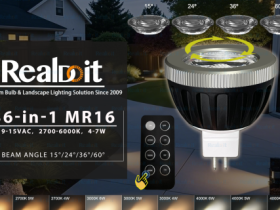A DC fuse is a vital safety device designed to protect electrical circuits from damage caused by overcurrent or short circuits. Unlike AC fuses, DC fuses are specifically engineered to interrupt direct current (DC) flows, which are constant and unidirectional. As renewable energy systems, electric vehicles (EVs), and solar installations become more prevalent, the demand and importance of high-quality DC fuses have grown rapidly.
What Is a DC Fuse?
A DC fuse is a low-resistance device that automatically interrupts the flow of current when it exceeds a predetermined level, thus preventing damage to equipment and reducing the risk of fire or electrical failure. It is typically used in applications where the power source delivers direct current, such as battery banks, solar panels, and DC motors.
One of the primary challenges with DC fuses is that direct current does not have a zero-crossing point like alternating current (AC). This makes it more difficult to extinguish the arc when the fuse blows. Therefore, DC fuses are constructed with special materials and designs that can safely break the arc, ensuring the protection of the entire circuit.
Applications of DC Fuse
DC fuses are used across a wide range of industries and applications:
- Solar Energy Systems: In photovoltaic (PV) systems, DC fuses protect solar panels and inverters from overloads.
- Electric Vehicles (EVs): Batteries and power systems in EVs require DC fuses to safeguard against electrical faults.
- Battery Storage Units: Large-scale battery installations in both residential and commercial settings rely on DC fuses for safety.
- Industrial Equipment: Many industrial machines use DC motors and drives that need protection from short circuits.
- Telecommunication Systems: DC fuses protect sensitive electronic devices from voltage spikes and current surges.
Choosing the Right DC Fuse
When selecting a DC fuse, it’s crucial to consider the following factors:
- Voltage Rating: Ensure the fuse is rated for the system’s operating voltage.
- Current Rating: Choose a fuse with a current rating slightly higher than the normal operating current.
- Interrupting Capacity: This is the maximum fault current the fuse can safely interrupt.
- Time-Current Characteristics: Some applications require fast-acting fuses, while others benefit from time-delay fuses.
Selecting the wrong DC fuse can lead to insufficient protection or unnecessary interruptions in power delivery.
Benefits of Using DC Fuses
- Prevents Equipment Damage: DC fuses protect sensitive electronics and costly equipment from electrical faults.
- Reduces Fire Risk: By interrupting fault currents, DC fuses significantly reduce the chances of fire.
- Increases System Reliability: A properly rated DC fuse ensures that the system continues to operate safely and efficiently.
Conclusion
As technology continues to shift towards renewable energy and electric mobility, the role of the DC fuse becomes increasingly important. These simple yet essential components serve as the frontline defense against electrical hazards in DC-powered systems. Whether you’re installing a solar power system or designing an electric vehicle circuit, incorporating the right DC fuse ensures long-term safety and performance.









Leave a Reply